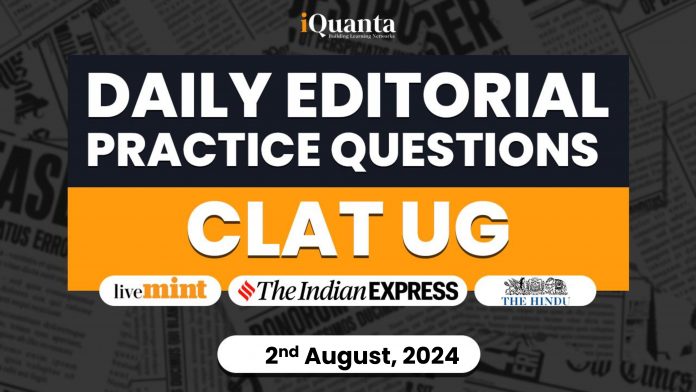Passage 1
While granting interim bail to Delhi Chief Minister Arvind Kejriwal on Friday (July 12), the Supreme Court observed that arrest under Section 19 of the Prevention of Money Laundering Act cannot be made simply for the purposes of investigation. Rather, the power can be exercised only when the concerned officer is able to form an opinion, based on material in possession, and upon recording reasons in writing, that the arrestee is guilty. “Power to arrest under Section 19(1) is not for the purpose of investigation. Arrest can and should wait, and the power in terms of Section 19(1) of the PML Act can be exercised only when the material with the designated officer enables them to form an opinion, by recording reasons in writing that the arrestee is guilty”, the bench of Justices [1] and Dipankar Datta said. It was further held that providing “reasons to believe” to the arrestee is a legal necessity: “Providing the written “grounds of arrest”, though a must, does not in itself satisfy the compliance requirement. The authorized officer’s genuine belief and reasoning based on the evidence that establishes the arrestee’s guilt is also the legal necessity. As the “reasons to believe” are accorded by the authorised officer, the onus to establish satisfaction of the said condition will be on the DoE and not on the arrestee.”
Opining that the existence and validity of “reasons to believe” goes to the root of the power to arrest, the court also said, “The subjective opinion of the arresting officer must be founded and based upon fair and objective consideration of the material, as available with them on the date of arrest. On the reading of the “reasons to believe” the court must form the ‘secondary opinion’ on the validity of the exercise undertaken for compliance of Section 19(1) of the PML Act when the arrest was made. The “reasons to believe” that the person is guilty of an offence under the PML Act should be founded on the material in the form of documents and oral statements.” In the 64-page judgment, the phrase “reason to believe” in Section 19 was analyzed in detail and it was noted that it is not the same as “grave suspicion”.
Section 19 says that the ED officers can arrest only if they have reasons to believe, which are recorded in writing, that the accused is guilty of an offence under PMLA.
“Clearly, “reason to believe” has to be distinguished and is not the same as grave suspicion. It refers to the reasons for the formation of the belief which must have a rational connection with or an element bearing on the formation of belief. The reason should not be extraneous or irrelevant for the purpose of the provision.”
Source: https://www.livelaw.in/top-stories/supreme-court-arvind
Get CLAT Online Coaching!

Passage 2
The seven-member Bay of Bengal Initiative for Multi-Sectoral Technical and Economic Cooperation (BIMSTEC) should find solutions to the regional challenges within itself, External Affairs Minister S. Jaishankar said on July 11 addressing the first BIMSTEC Foreign Ministers’ retreat. The meeting assumes significance as it is being held in the backdrop of major developments in neighbouring [1] where the military junta has been receiving battlefield setbacks against dozens of Ethnic Armed Organisations (EAOs).
“Global and regional developments also make it imperative that we find more solutions among ourselves. There are longstanding goals such as capacity building and economic cooperation that have acquired a new urgency. And not least, a grouping that is so complementary and so congenial in its membership should surely harbour higher aspirations,” said Mr. Jaishankar while addressing the participants. This is the first time such an event was organised since the Charter of BIMSTEC came into effect on May 20, which marked a landmark development in the evolution of the organisation.
The developments in [1] pose a major issue before the BIMSTEC as instability there has put a question mark on a number of developmental and connectivity projects that were aimed at firming up ties among countries like Nepal, Bhutan, India, Bangladesh, Myanmar and Thailand. A day before the beginning of the meeting in Delhi, the military junta in Naypyidaw lost control of Naungcho, a major town along a trade highway to China in the northern Shan State, to the Ta’ang National Liberation Army.
The Ministry of External Affairs is yet to clarify if India will extend humanitarian assistance to the affected civilian population inside Myanmar. Till now, assistance has been limited to the displaced population and personnel of the Myanmar military who sought refuge in Mizoram. Apart from Mr. Jaishankar, Foreign Ministers from Bangladesh (Hasan Mahmood), Thailand (Maris Sangiampongsa), Myanmar (Mr. Than Swe) and Bhutan (D.N. Dhungyel) participated in the retreat. Nepalese Foreign Minister Narayan Kazi Shrestha and the Sri Lankan Foreign Minister Ali Sabry skipped the meeting.
Sources said Mr. Shrestha avoided the meeting as the government of Prime Minister Pushpa Kamal Dahal is facing a crucial vote of confidence on Friday. Nepal was represented by Sewa Lamsal, Foreign Secretary, and the Sri Lankan side was represented by Minister of State for Foreign Affairs Tharaka Balasuriya.
Source: https://www.thehindu.com/news/national/india-hosts-bimstec-


